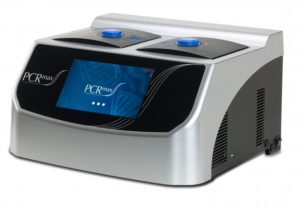PCR DNA Parasite Stool Test – Testing Guide for Patients
What is the PCR parasite stool test (from DNA)?
The PCR parasite stool test analyzes stool to find parasite DNA. The parasite DNA can be from live parasites, a dead parasite, or parasitic eggs (called ova).
What are the strengths of the PCR parasite test?
Tiny amounts of parasite ova (parasite egg) or parasite tissue could be detected and classified. PCR DNA/RNA testing is extremely sensitive.
Intestinal amoeba parasites are easily detected using PCR machines.
What are the weaknesses of the PCR parasite test?
This test can generate false positives. Old parasite infections your body fought off 20 years ago can be detected. That’s because our body keeps small amounts of parasite DNA around so our immune system can identify hostile invaders.
Your PCR machine has to be configured to look for specific parasites. There are 2 problems with this:
- To save money, a PCR machine may only look for the most common parasites in your region. But, with food global trade and immigration, parasites from other regions may be found on imported food and in your intestines.
- Some of the larger roundworm parasites do not have reliable DNA fingerprints yet. If you look at this PCR machine, they can only find parasitic amoebas and bacteria – it can’t find any worm parasites.

How does the DNA Parasite test work?
First, a patient’s stool is collected. Then it’s sent to a laboratory and prepared for the PCR machine.
Next, the PCR parasite testing machine is loaded up with the “DNA/RNA fingerprint” of all the parasites they are looking for. Each parasite has a short sequence of DNA that is 100% unique to that species of parasite – like a “DNA fingerprint”.
When any “DNA fingerprints” are found in the stool sample, the PCR machine makes thousands of copies of that “DNA fingerprint”. After the PCR “copying reaction” is complete, the scientist looks at what “DNA fingerprints” have been copied. Any “DNA fingerprints” are then matched to specific species of parasites.
Is this a good test for diagnosing intestinal parasite infections?
I would say no — it is not a complete test. The weakness of confusing current and past infections is a serious limitation. Plus, there is still an incomplete library of intestinal parasite DNA fingerprints.
But, in the next 10 years as we’ll hopefully complete the “DNA fingerprint” library of parasites. By then, the PCR procedure should be much cheaper by then as well.
At that point, PCR parasite test will be the ultimate “first step” for diagnosing possible parasite infections…even if it confuses past and current parasite infections.
But for now, I would not recommend the parasite PCR stool test as a comprehensive parasite test. Our parasite DNA knowledge is just a bit too limited.
What is a better parasite test?
My research shows that the ova and parasite stool test is the most accurate. It distinguishes past and current parasite infections, and can find the full range of intestinal parasites…if your lab technicians are skilled, and they use high quality preservation and contrast materials.
Also, here’s a comparison of the 6 most common parasite tests.
Article sources:
